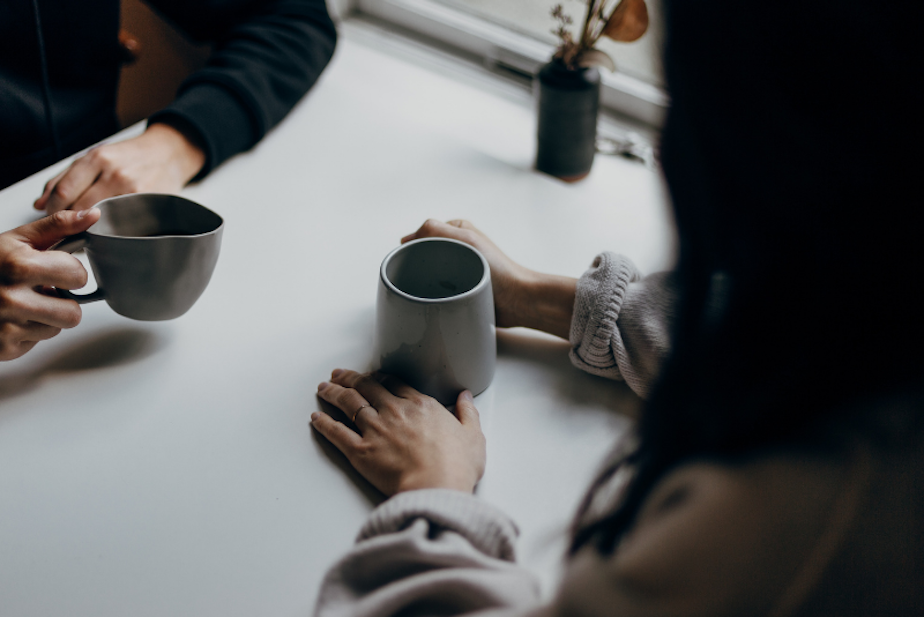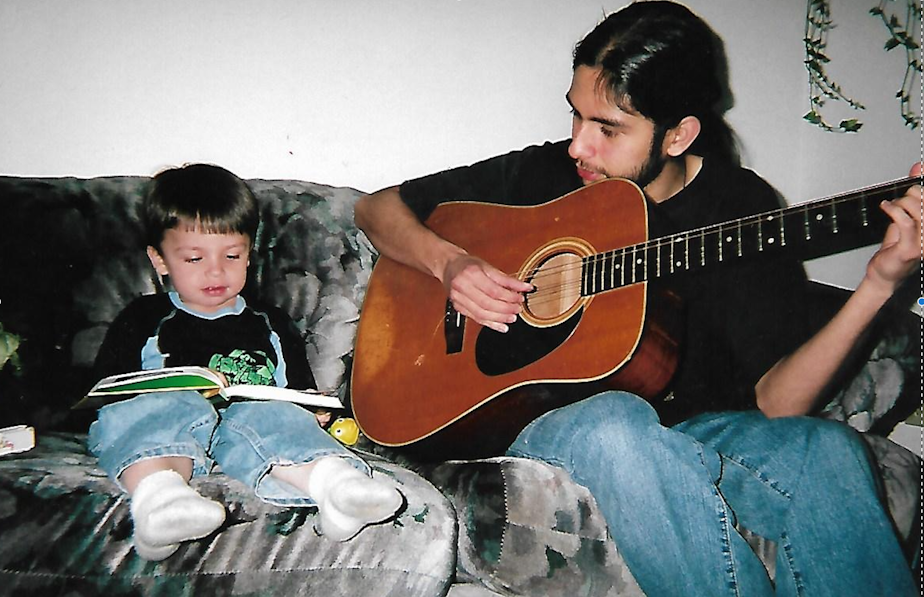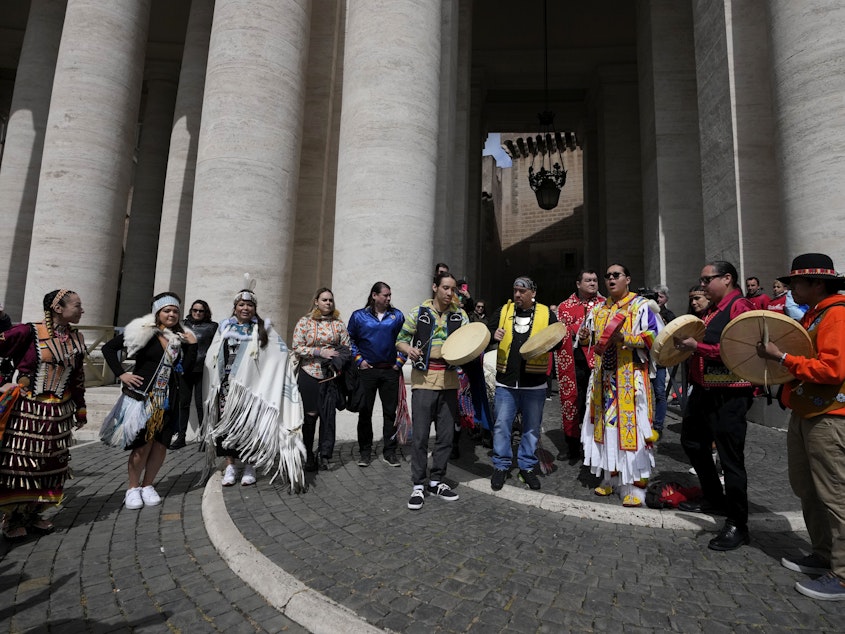Bridging divides by getting curious: Today So Far

- Don't say "marijuana" in Washington state.
- Rare fin whale washes up on a B.C. shore.
- Bridging our divides: Go have a curious, uncomfortable conversation.
This post originally appeared in KUOW's Today So Far newsletter for April 1, 2022.
Pretty soon, you won't find the word "marijuana" in Washington state lawbooks. Instead, you'll see it replaced with "cannabis." Lawmakers in Olympia recently passed a bill that considers it "pejorative and racist" to use the word "marijuana." As KUOW's David Hyde reports, this perspective is the result of decades of a little truth, a little propaganda, and a little urban legend.
On one hand, there were some past efforts to demonize the drug. It is thought that using the word "marijuana," its common term in Mexico, instead of its name "cannabis" was drawn from racist motives. But historians like Isaac Campos, a professor of Latin American history, argue that while part of this is true, there is a larger story. Campos explains that anti-cannabis campaigns began in Mexico long before they caught on in the U.S. A lot of that propaganda eventually made its way north of the border, resulting in its prohibition.
And like I said, this is part of a much larger story. Read more of that here.
There was some excitement in our region when there was a rare sighting of a fin whale near Seattle and Whidbey Island earlier this year. Now there is mourning as that whale has washed up on the shores of British Columbia. Members of the shíshálh Nation held a memorial ceremony for the whale. Whales are a significant part of shíshálh culture. Tribe members brushed the beached carcass with cedar boughs. Then researchers examined the body. It is believed that the whale was struck by a ship. Read more here.
Your mind is like an ax. You need some friction to keep it sharp. Otherwise, you'll just get dull as you hack at the world.
Sponsored
That's something I have found myself saying when it comes to life's grindstones, whether that's talking to people who are very different than you (even — gasp! — people who disagree with you) or just allowing yourself to stumble through uncomfortable conversations. That's the way I put it. If you ask author Mónica Guzmán, she would likely say: slow down and get curious. That's the general vibe of her new book I Never Thought of It That Way: How to Have Fearlessly Curious Conversations in Dangerously Divided Times. It's an extension of her work to bridge the divides among us.
In full disclosure, I have not read this book yet. Rather, I have enjoyed the conversation Guzmán just had with Pulitzer Prize recipient David Horsey, which you can listen to here. Guzmán talks about how she organized the book into three parts: sorting/othering; curiosity (conversations); and people (assumptions, reason, and opinion). And let's be honest, most of us lean heavily into the othering part. Then we skip conversations and jump right into having an opinion. It happens every time someone reads a headline (and nothing else) on social media and immediately begins commenting. And it happens when any of us make broad statements about X group who we have few, if any, connections with. There's a lot more to this, so check out Guzmán's discussion at Town Hall Seattle here.
AS SEEN ON KUOW

Hugo Guerra plays a song on the guitar as he helps his son Adrian read a book. Guerra grew up with a tough home life in Guatemala. He used his guitar to help cope and to overcome challenges as a teenager. When he immigrated to America his guitar became a tool to survive. (Courtesy of Hugo Guerra)
Sponsored
DID YOU KNOW?
It was on this day, April 1, 1989, at 6:53 p.m., that the Space Needle collapsed. Scenes of the toppled structure were aired live on KING5, cutting into Almost Live!, and shocked viewers. Though, the incident isn’t talked about too much these days as the tale has been lost over the years. I had a few friends who were surprised to hear it even happened. Probably because there were minimal injuries and it was put back in place pretty quick; the Seattle skyline was restored in time for Frasier to air in 1993. Also, it fell over Belltown, so at the time, not too many people really minded. Still, the Space Needle’s phone line was instantly hit with 700 people calling to check on loved ones working or dining at the Space Needle. Calls also flooded 911. Some speculated that metal fatigue was the cause. Others said that construction on a Metro bus tunnel was to blame. Today, it’s a story locals recall at watering holes — the day the Space Needle fell.
Happy April 1 everybody!
ALSO ON OUR MINDS

The pope apologizes for abuse of Indigenous children in Canada's residential schools
After a visit with delegations from Indigenous leaders of the First Nations, Inuit and Métis this week, Pope Francis has issued an apology for the actions of some members of the Catholic Church in Canada's residential schools

